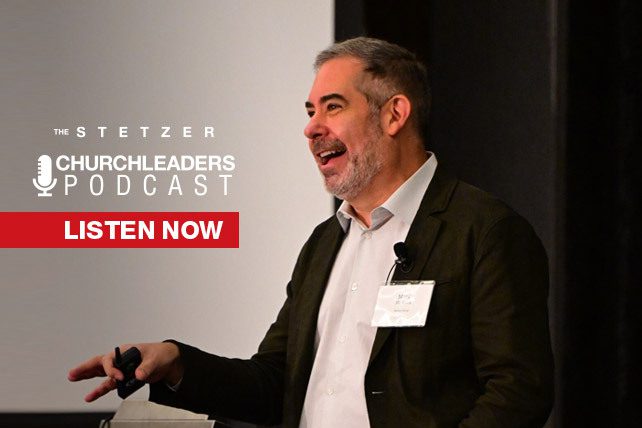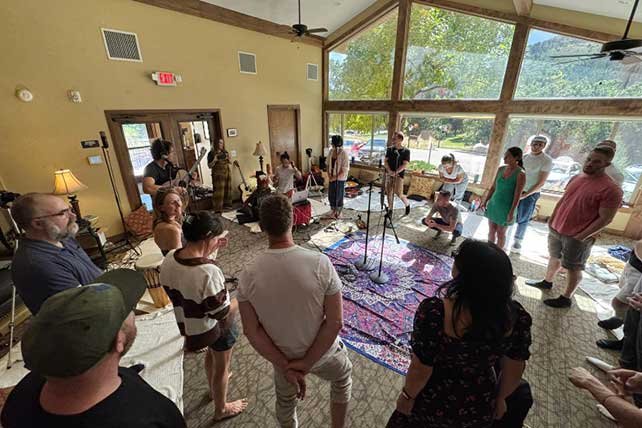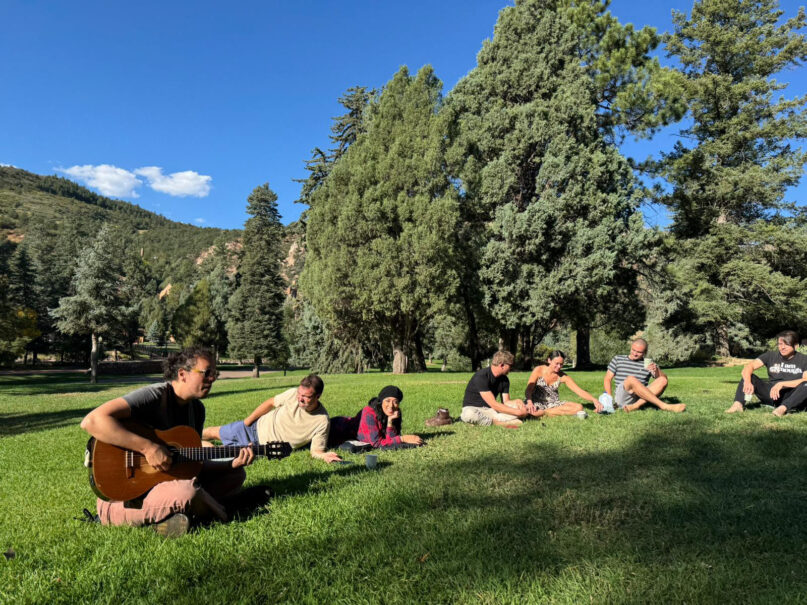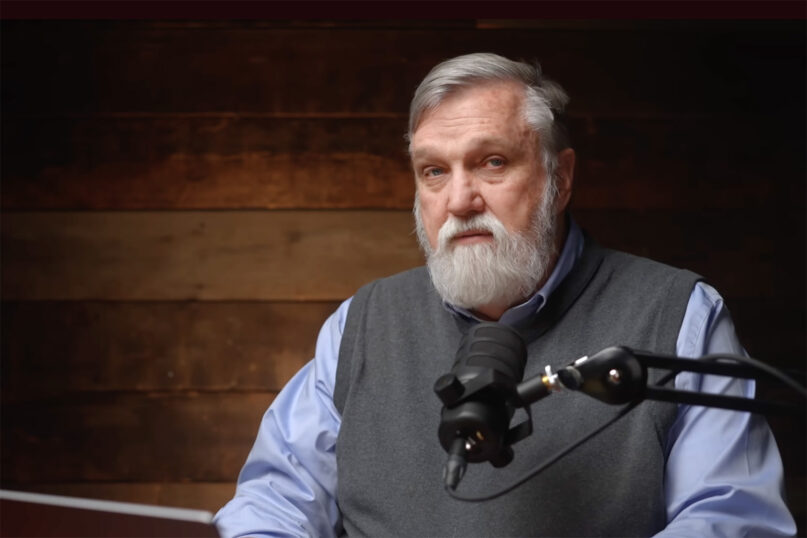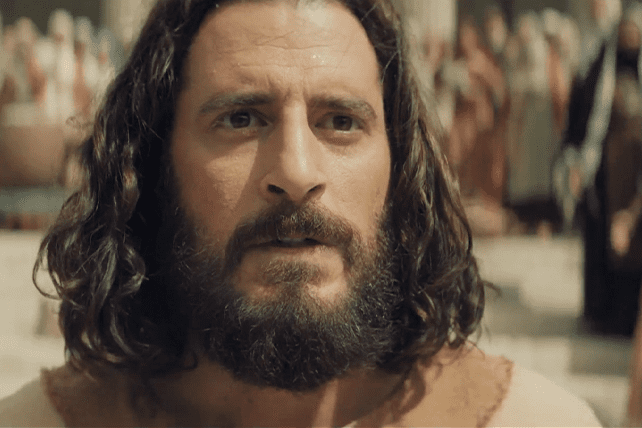Mark Matlock on The Stetzer ChurchLeaders Podcast.mp3: this mp3 audio file was automatically transcribed by Sonix with the best speech-to-text algorithms. This transcript may contain errors.
Voice Over:
Welcome to the Stetzer Church Leaders Podcast, conversations with today’s top ministry leaders to help you lead better every day. And now, here are your hosts, Ed Stetzer and Daniel Yang.
Daniel Yang:
Welcome to the Setzer Church Leaders Podcast, where we’re helping Christian leaders navigate and lead through the cultural issues of our day. My name is Daniel Yang, national director of Churches of Welcome at World Relief. And today we’re talking with Mark Matlock, Mark’s senior fellow at Barna and a facilitator of innovation and impact. He’s also director of Urbana missions conference for InterVarsity Christian Fellowship, and an author whose latest book is Faith for the Curious How an ERA of Spiritual Openness Shapes the Way We Live and helps others follow Jesus. If you enjoy our interviews, make sure you like and follow us on Apple Podcasts. Now let’s go to Ed Stetzer, editor in chief of Outreach Magazine and the dean of the Talbot School of Theology.
Ed Stetzer:
Hey, Mark, we’ve known each other for a while and I’m super excited we could have this conversation. You’ve brought a lot of wisdom to a lot of different places, and I shared some of that in the intro. But but this this book I think is really well, it’s a gift at the right time. Your book looks at kind of a specific segment of the population, people you call the spiritually curious. And I think that language, you know, I’ve heard the language, you know, curiously open or spiritually open and curious. I think it’s good, helpful language because the assumption is, is that the to use a common term, maybe in the past, the unchurched or a monolithic block, and they’re not a monolithic block. Tell us about this group, this spiritually curious. Curious.
Mark Matlock:
Yeah. Well, you know, we were doing research at Barna with, you know, he gets us American Bible Society Alpha, a lot of different groups. I started noticing that there was this group that was about, at the time, about 90 million people in our that would represent that in the population that didn’t really fit the normal like characterization. A lot of us think of when we think of the unchurched, and some of their behaviors show that they had, like, really deep connection to spirituality, but not necessarily Christianity, and that they were kind of like seeking spiritual encounters. And I thought, you know what? If we’re missing something in the way that we’re framing out those that are outside the church, and maybe we’re not connecting with them in the way that could best help them know who Jesus is. So that was kind of how I got into all that.
Ed Stetzer:
And I think it’s, again, worth noting that, um, our pastors and church leaders and their teaching people in their churches to share the gospel, which I hope they are. We want all to be participating and sharing the good news of the gospel. And what happens is when you don’t tell people that the unchurched are not this monolithic block, and they go out and they share some and this immediately reject them, they kind of assume that everyone is not open or no one is curious as well, but there are distinctions between them. So let’s talk a little bit about first. Yeah. Um, What? Give us a little more about what sets apart the spiritually curious from other non-Christians or unchurched people.
Mark Matlock:
Yeah, well, I think the first thing we need to realize is that while they’re spiritually curious, that doesn’t necessarily mean that they’re interested in Christianity per se. So we can still feel a little bit of like maybe a rub against that a little bit and a little maybe skepticism toward Christianity. But what we need to realize is that they are spiritually seeking and therefore kind of how we engage them and approach them is what’s really critical. And so what we did was we actually measured like how strong their belief was in the supernatural world, and then also cross-indexed that with a measure for curiosity. And we define curiosity as being using two factors. One was stretching where they’re actually looking, seeking new experiences and exploratory in the way they are. And then the other was embracing, which had to do with Being okay, living in the tension of uncertainty as opposed to having everything figured out. And what we found was that there was this group of spiritually curious people that were actually more curious than even practicing Christians were. The group that was the smallest in our in our kind of segmentation was actually this group of people that were what we would call naturalists that pretty much believed the physical world is all there is. There isn’t anything that kind of happens after we die, and there’s this larger group in the middle that make up about 54% of the population that have high curiosity, and they believe that there is more to be experienced beyond the physical world. So we have to kind of start there with that kind of a framework and kind of realize that when we talk to somebody, it’s a pretty good chance they believe there’s more out there. Um, but we don’t necessarily know or get to assume what it is they believe about that. And that kind of is what starts maybe our posture a little bit different than maybe how we’ve done evangelism in the past?
Ed Stetzer:
No, for sure it would. I think it would impact our posture deeply. And I think I was thinking of a stat that I, you know, I think of stats. It’s weird, but every time I quote a stat, an angel gets its wings.
Mark Matlock:
But me too. I try to stay away from the stats and get to the insights, but you know, it’s hard not to when you I know.
Ed Stetzer:
I know, just a couple. Just a couple. I mean, you know, we’re all in the we’re in that research nerdy thing. Yeah I know, I know there’s nothing wrong with that. Don’t don’t don’t let anybody shame you for that, brother. This could be the whole point of our podcast. Don’t let people shame you for stats. Unless you use fake stats. Unless you use bad stats. Don’t do that. Don’t say stats. Like 90% of pastors don’t make it to retirement. That’s a fake stat. Don’t say anyway, I’m going to stop right there. Okay? 88% of evangelical youth drop out of church at high school never to return. Don’t say that. But for real stats. One of the interesting things that I was reading a journal article about was, um, Iceland has a it’s very much post-Christian, which it has a great gospel story centuries ago, but it’s very much post-Christian, and you would find that people are just not open to a lot of what Christianity, not not all of them, but a lot of people are not open to that. But they have some of the highest percentage beliefs in elves and fairies.
Ed Stetzer:
And, you know, part of that comes back to the history, historical background. So so those people would fit in some of the categories. They’re open to spiritual things. So it’s not that it’s it’s not that like the the Engel scale is a famous representation of, of how far a person away is from understanding the gospel starts with, is there a God and, you know, an awareness of God through in Christ and, you know, awareness of our own sin? They’re not on the Engel scale. They’re not like moving that direction. I mean, they could be on the angle scale, but they’re like in another it’s another category, in a sense. And and that category, though, means that Christians will do have an opportunity to say, well, what about this? Let’s talk about this. Et cetera. Et cetera. So talk to us a little bit about the difference between the spiritual curious and practicing Christians, because I’m guessing that all of my audience is practicing Christians and are pastoring practicing Christians. So what’s what’s the distance? What’s the difference? What’s the is there a chasm between them? Tell me about.
Mark Matlock:
That. Yeah, there are some that we would call curious skeptics. So they’re curious. They believe there’s more out there. You know, we might typically want to refer to those people as agnostics, but it’s different. It’s a different thing. It’s more I believe this, but I am skeptical about the experiences. And a lot of that has to do because of past experiences with Christianity. In fact, our research shows that, you know, with this large, you know, this rise of the religiously unaffiliated in the United States, that over half of them, about 55%, grew up in a Christian home. So they have some familiarity with Christianity. And a lot of times they’re looking for something more. And so that’s really critical. And so I kind of take the approach of thinking about how the apostle Paul admired, you know, when he was on Areopagus. You know, I see you’re a very spiritual people. You know, you’ve got all these idols rather than going, ah, you know, you evil people worshiping these false gods. He admires their spirituality and then leads them to Christ. I think we have to kind of take some of that same thing of really starting by finding out where people are coming from, what their spiritual journey has been. Um, one of the things I talk about in the book is, uh, some writing that C.S. Lewis did talking about post Christianity back in the 1940s and 50s, and he talks about how a post-Christian person is very different than a pre-Christian person, kind of like a lot that’s never been built on is different than a lot that was built on and was cleared off. And that’s kind of the kind of person that we’re dealing with, is they’re living in a culture that’s been exposed to some moral principles.
Mark Matlock:
Uh, one of my one of my favorite stories, in fact, in the book is, you know, I’m talking to this this guy who says I don’t need the Bible to help me with my morality. And I go, well, you know, how did you develop your morale? He goes, well, you know, things that everybody knows. And he gives me like, you know, seven different principles of his morality. I’m like, you do know that those are like seven of the Ten Commandments. And he was like, really? You know, he never put the two together, but yet they were enough that he could articulate them in his life. And so we’re living in a really interesting time, but finding out people’s history is really important. Um, you know, do they believe in elves and fairies? Are they reading their tarot cards? Are they consulting Ouija boards? And our research shows that that actually a lot of Americans aren’t really exploring a lot of these occult practices and huge numbers, but the spiritually curious are doing more of that than the average population. And what we need to do as Christians is, instead of maybe being offended or shocked or horrified by that, realize, hey, this is a person who is actively seeking a more intense encounter with the spiritual world. How do I help them meet the ultimate person, Jesus Christ? And and that starts by being curious about them and genuinely curious about them, rather than making a bunch of assumptions about what they know or trying to, you know, plug the hole in their soul with our, you know, truth bomb.
Ed Stetzer:
Yeah, totally. And I was I was on a zoom call. I’m preparing for my my Oxford class in December. I teach at Wycliffe and we work with the Anglican and Ordinands, and I bring my Talbot students. And so it’s evangelism and, and and we had a great conversation about that very thing. Is that reading Shawna Pilgrim’s book and talking about, you know, having actually some conversation, having been curious, having a humble posture and more and, and I think it really resonates. Some students are already there comfortably, but for other people, it really resonated with them. It’s almost like new news. So so I think the curiosity here, but it’s also messy. Um, you know, a lot of a lot of us have been watching the Russell brand. Fascinating. Yeah. You know, and it’s been fascinating.
Mark Matlock:
Oh, totally.
Ed Stetzer:
Yeah. I could have done without the baptism in his tighty whiteys, but but the. But this week, at the time we were recording this, you know, he held up his magic amulet that keeps bad things away. And it’s like, this is the same guy I like a couple of weeks ago who’s quoting Tim Keller or Rick Warren or C.S. Lewis, and now he’s holding up his magic amulet and, you know, and, you know, everyone erupts and I’m, I’m kind of like, you know, this is not unexpected behavior for somebody who’s sort of just figuring these things out. And he’s got a whole life that is is amassed and problematic and everything else. So, so, so what I would say is when you start engaging some of these spiritually curious people, I mean, in a sense, they’re they’re already curious and probably engaging and looking at other things. Yes. So how then do you where does Christianity is it? Do we take the approach to, hey, here’s another god among all the gods you’re seeking, or this is the God you’re seeking? I mean, help me frame that in a category. Yeah.
Mark Matlock:
You know, and I think a lot of it is like, we have been so trained in evangelism methods that we don’t realize how those are sometimes maybe hurting us in our approach to the curious, what was meant to help us do good and do better is actually maybe working against us when it comes to the curious. So like an example of that is this idea that people have a hole in their soul and they’re trying to fill that hole.
Ed Stetzer:
That’s that’s Augustine don’t don’t like, don’t dismissively. I’m at the Talbot School of Theology. Augustine, I.
Mark Matlock:
Know there’s.
Ed Stetzer:
A God shaped hole is the popular way to put it, but it’s basically our heart is restless until it finds its rest in thee is what Augustine well, so in King James English.
Mark Matlock:
I believe that there’s something that we’re searching for, but it may not be the whole that’s like a void that I’m in despair over. Right. And so the way I like to think about it is it’s not like, and we’re finding this, you know, that people aren’t sitting there asking these existential questions about what is my purpose in life, how do I fit in the world? My life is meaningless, and we’re kind of taught some of those frames in our evangelism methods and that this truth, these, these truths about the gospel, you know, will help fill that. And what I found is the the void that’s in people’s life is actually the difference between what’s remaining of the image of God in them. So if we think about the image of God being that mirror that reflected the glory of God in all of us as human beings, and sin fractures that mirror people have this little shard of God’s image in them, and it’s trying to get bigger, especially in a post-Christian culture where they have we have time and space to reflect on that and to think about it and go, boy, I feel this thing and I want more of it. And so what a lot of people are looking for in their spiritual pursuits is not like answers to their biggest, darkest questions.
Mark Matlock:
Or they’ve got this emptiness inside that they’re trying to plug. They’re looking for an upgrade. They’re trying to figure out, how do I do this thing that I’m feeling deeply about inside more and better, and they’re searching for that. And unfortunately, like, justice could be one of those things that they’re searching for. And so they’ve got a heart that sees the evil and the wrong in the world, and they’re fighting against it. But without Jesus and without his framework, they don’t really have the tools, the equipment, the relationship, the Holy Spirit in them to really act justly. They may want to be creative. They may want to care for people. They may want to live a generous life. And there’s something inside. And so I’m always looking for where is the image of God trying to get bigger in somebody’s life? And how do I help connect that to Jesus and to Jesus like qualities, and show them that Jesus is the one to follow, to do more of that thing. And that is what I found has been like like people are surprised, even people that have grown up in a Christian home or around Christianity or like, nobody’s ever talked to me about Jesus that way.
Mark Matlock:
And so that’s where some of our training that was meant to help us be efficient, uh, you know, kind of maybe clouds our view of what really is going on in their life. Another thing is just the idea that, you know, a lot of our evangelism methods were designed to be real efficient so that we could share the gospel with as many people as quickly as possible. And the reality is, while that may have worked in a day when we were kind of in more of a Christian worldview, kind of a society, um, we have to have a lot more patience with people and realize that when we start a conversation, it’s probably a conversation that’s been going on in their life and will go on for a long time. And so I’m also looking for when I interact with a curious person, where’s God already been in their life? Where has he already shown up for them? Not assuming that I’m the only person, and that I only that I will be the only person in their life either? Um, that’s a different posture, I think, than a lot of what we’ve been taught.
Ed Stetzer:
Yeah. And I would say that there’s a clear sense that people who are open, who are spiritually curious are going to be already, in some level, engaging or thinking about something else. So it is a redirect to that conversation, but also in the research. Well, also, and I should say too, by the way, the book, the book name is, the book’s name is faith. For the curious how an era of spiritual openness shapes the way we live and help others follow Jesus. One of the longer subtitles in the world today. Yeah. But again, faith for the curious is a good, simple way to put it as well. But part of the reality is, is there is some and you and the book is a mix of it’s got some research, but also, you know, your own journey, your own engagement, which I love. Yeah, I love that.
Mark Matlock:
David in the foreword, David Kinnaman in the 40. He didn’t call me a data nerd. He called me a data storyteller, which I really liked. Yeah.
Ed Stetzer:
And I was gonna say, that’s one of things I like about the book, is you’re telling some of those personal stories and personal experiences. So why then, are non-Christians or some subsets of non-Christians hostile towards Christianity?
Mark Matlock:
Well, you know, once again, very small percentage of people that are really set in their ways. So we’re talking like 10% of the population. So most people are open to having a conversation about spiritual things, but they also tell us that they don’t want conversation, spiritual conversations that force a conclusion and that are designed to convert them. Right. And so which isn’t hugely surprising, but it also makes us go, well then how do I how do I approach people when I’m my real desire is for them to come to know Christ. And so being incarnational in the way that we live, and just kind of being there and realizing that we may not be the end of the story, I think about the, you know, the story of the rich young ruler who comes to Jesus. Jesus as he’s walking away. Jesus doesn’t chase him down and say, hey, wait a minute, wait a minute. You know, like, right, we can still work on this. Um, he, you know, turns him them away and lets them just kind of sit in that. In fact, it’s on my top ten things to do when I’m in Heaven is to see if the rich young ruler is there, because I actually believe that at the end of the story was never recorded. And I believe, I personally believe just reading that, that he went away and really wrestled with it. And I and I wouldn’t be surprised if eventually he came back and became a follower of Christ. That’s, that’s that’s what I want to believe. And it’s one of the first things I’m going to do when I’m in heaven is say, hey, whatever happened with that rich young ruler guy? You know, is he here? And because I have a feeling he is. Yeah.
Ed Stetzer:
Well, I don’t know how to respond to you having a feeling about who’s going to be in heaven. Mark, sometimes you’re sometimes you have a fascinating ways of thinking. But but nevertheless, again, it’s one of the reasons I love your, your your, your book. It’s got that kind of storytelling ability in there. Okay. So let’s get to a hard topic is the topic of deconstruction. Yeah. And because you addressed that some what does your research tell about us? Tell us about those who are or have deconstructed the Setzer church Podcast.
Ed Stetzer:
Is part of the Church Leaders Podcast Network, which is dedicated to resourcing church leaders in order to help them face the complexities of ministry. Today, the Church Leaders Podcast Network supports pastors and ministry leaders by challenging assumptions, by providing insights and offering practical advice and solutions and steps that will help church leaders navigate the variety of cultures and contexts that we’re serving in. Learn more at Church leaders.com/podcast network.
Mark Matlock:
So not only did we find that, you know, in general, practicing Christians are less curious than those that are spiritually curious. We also use something called a need for closure scale, which basically says do I look for information, seek information to basically close things and find certainty? And how comfortable am I with ambiguity? And practicing Christians are surprisingly like a 10% difference between the general US population and practicing Christians in terms of the need for closure. Now, there’s nothing wrong with having a high need for closure. It’s not a pejorative thing, but it’s something for us, especially as leaders, to think about in terms of what kind of a culture are we creating in our churches? Because if our culture has a high need for closure in the way that we’re, you know, putting on our programs and everything like that, spiritually curious people are never going to be comfortable or interested in being a part of what it is that we’re doing. And so it’s something to think about. And so as we think about deconstruction, and as I looked at that high need for closure, and I think about all the people that I’ve talked with and journeyed with in their deconstruction process, a lot of them are younger people who I’ve typically worked with.
Mark Matlock:
A lot of it was just simply that nobody was willing to really sit with the questions and the doubts that they had in the moment. They either tried to give them bumper sticker answers to the questions that they had, or they shame them for even having questions at all. And I would much rather journey with somebody in community that’s having questions and doubts than to have them take their faith on the road outside of the church. And we’ve had a lot of that over the last ten years, uh, especially as young people have struggled with Christian nationalism and those types of issues in the church. And they start raising questions and they’re shut down or shamed or, you know, given bumper stickers and they they walk away. So I think we have to really think about the curiosity culture that we have. And are we missing out on the wonder of who God is? Because maybe we aren’t as curious spiritually as we should be? Um, within a, you know, a Christian framework? Yeah.
Ed Stetzer:
So, yeah, to be curious within a Christian framework is what does that mean? Like, what would that look like? How would I be curious within a Christian framework? Yeah, I mean, I’m curious about what Anglicans believe about the articles. I’m curious about, you know, Pentecostalism and charismatic movement and splits between the two. So that’s when I think of curious. But and this is this is the case you’re trying to reach spiritually open and curious people. So what does it look like to be curious in that setting?
Mark Matlock:
Yeah, I think, you know, it’s interesting because, um, you know, we were talking about Augustine and and, you know, he had the curiosity, right, that he, he actually kind of framed as a negative thing that could open up. But yet he was a very curious person. Yeah. Um, so curiosity sometimes been framed negatively in our church culture. So we’re afraid. Well, if I’m exploring or or looking or asking questions of these things, somehow I might lead me down a wrong path. Or I might, um, you know, lack integrity, or I might fall for an untruth. And we get so obsessed with the truth as an idea that we forget that the truth is a person embodied in Jesus Christ. And um, and so seeking him in every aspect of our life is really important. But if you even think about, like, art and Christian movies and things like that, um, you know, a high need for closure is going to create art that’s more concrete and specific, that lacks.
Ed Stetzer:
You end up with the God’s Not Dead movies that end a certain way.
Mark Matlock:
Yeah. Yeah, exactly. You know, and, uh. Well, I remember some friends of mine made a pretty popular movie, and, uh, one of the distribution companies said, you know, you don’t have this really clear moment where there’s this conversion experience where somebody prays to receive Christ. And, you know, the Christian community loves that. But they were like, well, that’s not really kind of how this journey happened in this person’s life. Uh, it was a process over time of this transformation that took place with a moment, for sure. But they didn’t want to say, oh, you pray this prayer, and then all of a sudden you’re not an abusive father anymore. Right. Um, and so and they actually lost the distribution deal on it, and it turned out to be one of the most one of the higher selling movies you know, of all time. Um, and I can only imagine what it is, but, uh, yeah, but it was interesting to, um, you know, to to see them struggling with the storytelling.
Ed Stetzer:
Did you get it?
Mark Matlock:
Yeah. You got it. So that that was kind of an interesting thing, though, to watch them on that journey and how there was this desire to, hey, Christians really like this. And they’re like, but it’s not real to the rest of the world. It rings authentic. And they wanted the larger audience to also hear the message of of that good news. Yeah.
Ed Stetzer:
So I think being curious yourself is not necessarily I’m curious how tarot cards work. And I want to, you know, practice those and see what the result is. Right. But but at the same time, you know, I’ve, uh, but I’m.
Mark Matlock:
Curious why other people are interested in them and, yeah, know exactly what they’re seeking to get answers from. Right. And that’s how I ended up.
Ed Stetzer:
Right now I have a particularly short haircut, which sounds strange at the beginning, but stay with me. But part of that is, is I’m in a kind of sharing the gospel relationship with the guy who cuts my hair, uh, the salon owner. And and he’s not, not a believer, but has spiritual questions. And so I spent a lot of time asking him those about that. I was curious about how did you get to that place? What does that mean? And then I shared what I believe in my faith, and he’s actually now planning a time for him to come to church and bring his kids. And. Et cetera. Et cetera. So, so I think, though, if I hadn’t and again, this is partly key. So I mean, I’ve been my guy, been my hair guy for six months, but the reason my hair is short is we ended up in this longer conversation, this time about the Lord and about what’s next. And and he just kept using the opportunity to shorten my hair. So so, you know, there there are consequences to actually having spiritual.
Mark Matlock:
And you’ll probably get your hair cut more often too, so that you can. Exactly, exactly.
Ed Stetzer:
Yeah. Exactly. So, so but I but I do think the curiosity there made a difference as well. So I’d love to keep coming back to. So how do how do believers currently try to reach the spiritually curious people and maybe contrast that what we do need to actually do to engage them?
Mark Matlock:
Yeah. Yeah. So as leaders, you know, practically how do we do, you Do this one is teaching our people to ask spiritual discovery questions. Um, you know, love that. And so I think that’s a real important thing. We talk about this in the book, but like just being curious about people and knowing how to look for certain cues in their life. Um, so, you know, sometimes when I’m talking to people and we’re just on a plane and we’re just talking about things, you know, it’ll come up, you know, maybe that I’m a Christian or a minister or whatever. Um, and, and I always am careful sometimes how I lead, like, when they go. So what do you do for a living? You know, sometimes I’m an author, sometimes I’m a nonprofit executive, you know? And I’ll let the truth about me come out in time. Uh, because sometimes that can be a conversation ender. I just kind of feel the spirit in that moment, but, but but, like, if they have tattoos, I find that that people love to talk about their ink. And a lot of times their ink, uh, leads us to like, really deeply personal moments in their life where they wanted to commemorate that by marking themselves. Or maybe there’s a spiritual symbol that has meaning for them. If the conversation I find that people don’t get to talk about spiritual things very often, so they’re very open to talking about it. Most of the time, um, especially when I’m curious about what they’re interested in, as opposed to telling them what I know. So, um, so first of all, just knowing that, that, that I have a high probability of having a good conversation with people is huge.
Mark Matlock:
But, um, but another question that I’ll just ask them is, hey, is there ever a person in your life whose spirituality you really admired and you will literally see people’s faces change like they will? That’s good. Their countenance will shift as they think about that person. And I mean, for Americans, nine times out of ten, it’s a Christian and it’s usually like a grandparent. Um, and they will talk about that person, and then I’ll just continue to just explore that with them. A lot of times, my spiritual Discovery questions lead to the other person actually asking me to tell them more about Christianity, rather than me having to impose that on them. Um, just because that posture, in fact, for Yom Kippur. Um, there was a Jewish woman that I was having an interaction with on an airplane. She wrote me this a year later, and she said, I’m reflecting on Yom Kippur, on great moments that I’ve had, and I just keep going back to the conversation that we had on the airplane. And she had written this beautiful children’s book about a butterfly, and we just connected about the meaning of this butterfly, the spirituality of this children’s book that she wrote. And, you know, here she’s hunting me down, tracking me down, um, to tell me about what’s happened since that moment. And I thought, wow, you know, but it was just being present with with her in that way. So that’s so spiritual discovery questions. That’s a real important thing.
Ed Stetzer:
And they’re in the books.
Mark Matlock:
They’re in the book. But. Yeah, but but even you know, we, you know, the book just scratches the surface of this issue, right? It’s providing the foundation. We’ve got a lot, but it’s got some.
Ed Stetzer:
I mean, I would say it’s got I don’t want you to underplay your book. I think spiritual discovery questions are helpful. And again, the book is faith for the curious how an era of spiritual openness shapes the way we live and help and others follow Jesus. But you’re going on say that there’s more ways than just there.
Mark Matlock:
Yeah. And then the other thing we have to think about is how we present the content that we have. So one of the things that we were doing with the American Bible Society is we were looking at, you know, what are people searching for when they search, uh, Google for the Bible? Uh, you know, what are they looking for answers on? And one of the top ten things people search for is what does the Bible say about dinosaurs? And so I asked pastors in a workshop, you know, so, you know, knowing this, that people are kind of curious about dinosaurs and what the Bible says about how would you respond to that? And they all said, oh, I would do a sermon series on what the Bible says about dinosaurs. Right. And it’s kind of like, you know, when you’re a hammer, everything’s a nail. So, um, so I said.
Ed Stetzer:
Well, don’t judge us. Yeah, don’t judge us.
Mark Matlock:
But I said, how would we like how would like, think about a curious person that maybe doesn’t believe in the Bible. How would you want to approach that with them? And they really struggled to think beyond putting a sermon together and presenting their perspective. And so I started thinking about it more, as, you know, how do we help present truth to people in a way that’s a little bit more like a museum? Because one of the things that our research has shown is that spiritually curious people, um, they want to have agency in their spiritual discernment process. Um, they are so in this post-truth culture, they don’t trust other authorities and sources. They want to be the agency. It doesn’t mean, you know that they can, like Russell Brand, go through the buffet line of beliefs and choose what they want on their tray. We’re not talking about a faith that people can make up their own thing, but they need to have agency in the process and the journey of discovering. And the pastors were so worried about how they might perceive the Book of Genesis and origins that I realized I just asked them. I said, do we really have confidence in the truth of the Bible? Or are we so worried that people can’t handle the truth that we have to interpret and and can we give them agency to explore on their own, and maybe look at some ideas that we might not be comfortable with and where we’ve come to the conclusion we give so many manufactured interpretations that we’ve worked through and processed deeply, that we forget that other people need some time to also go through that.
Mark Matlock:
And and for a lot of pastors in this workshop, their eyes were opening up, going, oh, wow. Yeah, I’m kind of thinking, like, I’m going to do all this work and then present my findings rather than realize it. For the curious people, the journey that I went on is really what they’re interested in. And so figuring out how to become co-learners with people and having absolute confidence in the Word of God as the truth. Absolute confidence in the the living Jesus Christ and the Holy Spirit working in us that we don’t need to worry about, like them going off the deep end. Like the truth is they’re going to find it if they’re seeking it. And and then we need to create that environment that allows them to find that that’s a that’s a paradigm shift for the way that we think about content is that it really is.
Ed Stetzer:
I would say, you know, I think a good podcast has a little disagreement. I when you mentioned earlier about, uh, you know, we memorized our gospel presentations and you expressed concern about that. I actually don’t disagree that we could use our gospel progressions wrong, but I just don’t think we’ve memorized our gospel presentation. Well, I think it would be a better Christian world if everyone had a gospel presentation in the back of their head that they could fall back to, but then would in kind of a relational, organic sort of conversational way. But and I guess so. So we’re going a little long actually. But I like this topic as you can tell. So we’re about to do an announcement here at the Talbot School of Theology related to some significant evangelism initiatives that we’re about to launch. And and I’m going to include your book in some of the well, not just because you’re a Biola person. We’re glad to have you as a Biola graduate. But but so here’s here’s what I want to close with. So I’m of the view that most pastors bemoan that they don’t have an evangelistic church when they themselves are not evangelistic. And so you and I believe you can’t you can’t live what you you can’t lead what you won’t live. You know, just old cliche. You can’t lead what you won’t live. So and for a lot of pastors though, and I think for a lot of people, what happened is they found that the tools of the past that maybe those memorized evangelistic presentations didn’t work like they used to. And I gotta tell you, I mean, statistically, I could show you they were making a big difference at different times in the past, but now.
Mark Matlock:
I totally agree, by the way.
Ed Stetzer:
Yeah, yeah, yeah, for sure. And they become maybe, you know, theologically less aligned with the current cultural moment. So what I would say to people is don’t get don’t just give up and say, well, you know, evangelism doesn’t work. No. Maybe we need new ways to kind of find, to share, to communicate the good news of the gospel. So back to the pastor thing. And this is I’m the worst question asker because I’m setting this up for a very long way. I was convicted of this in my own life when I was flying around the country telling people to live on mission, and I made a commitment to the Lord, and I pray regularly, Lord, give me the opportunity to share the gospel with somebody in person once a week. And then I look for those opportunities, and they almost always feel like some of the things you described in your book. And again, if I actually do go to a gospel presentation, there’s an openness, but it feels a lot more like a conversation with curiously open and, you know, conversations. Faith for the curious. So I want to say to the pastors and church leaders, you know, the probably the, you know, the the Sunday school teacher or the small group leader is less likely to listen to this podcast, but most people listen are church staff. I’m of the view that it’s actually easier when your church staff because people, what do you do? Well, I’m a pastor, you know, and or whatever. And then that’s everyone knows the conversation is now there before you. Um, but I recognize, too, that when I walk into places like in the South, people hide their beer. When I walk into places, I get that as well. So. So what can pastors and staff you? This is space you’ve been in. What can pastors and staff do to engage people who are open to faith? What are some good next steps so they can make this a pattern? And then pastors, then you got to tell your people how you’re doing and invite them to do it. But what would you say, Mark?
Mark Matlock:
Yeah. You know, back in the early 2000, I actually was a part of Dcla for youth for Christ their Kind of evangelism super conference. And we introduced this idea there that has now become the logo for youth for Christ. But it’s three story evangelism. Yeah, it’s a really simple paradigm. And but it’s basically start by asking people what their story is. So that’s the curiosity part. Um, that will naturally lead to an opportunity for you to ask permission to tell your story, to share how you came to faith. I think that’s really important, too. It’s not just having the the gospel presentation, right, but having your experience. Right. Because that is that speaks a lot louder to the curious generation is your experience than what you say the Bible says. And then after you share your story, you share with them God’s story. And so you connect them there. But, but, but looking at hearing their story helps me know how to connect them to God’s story, uh, how to draw those lines. I think that’s, as the leader, what we have to what we have to help people do. And it’s not easy to teach, you know, it’s, uh, there’s an intuition about it. You’ve got to actually practice it. Um, and so it’s, it makes it a little bit, like, less neat and clean when we are trying to build a workshop around it. But it’s really important that we teach those skills to people, is how to sit in that that presence of, you know, hey, it’s okay if this conversation doesn’t go the direction that I thought it would. It’s all right. God, this is part of what God has in this person’s life overall. But I think you’re right. Everybody should have and be able to lead somebody to Christ with a presentation. It’s just, what do you put in front of it to get to that place? Yeah.
Ed Stetzer:
I often say to people that evangelism is telling people about Jesus. Missions is understanding them before you tell them. It’s way more than that. Yeah, but but but don’t miss that.
Mark Matlock:
So it’s fertilizing before you sometimes harvest. Right. And exactly. And that’s so so I think it’s fertilizing I.
Ed Stetzer:
Want I want people to think more theologically about their evangelistic conversations. And I think I and I’m going to let me just say to you, to the folks at Faith for the curious, how an era of spiritual openness shapes the way we live and help others follow Jesus, I think, will helpful be be helpful for you to understand the cultural moment and to engage it well. So because I think there’s an opportunity. I think the fields are white unto harvest. Mark, thanks for taking the time to be with us. We appreciate you. Yeah.
Mark Matlock:
Hey, thanks. I appreciate it.
Daniel Yang:
We’ve been talking to Mark Matlock. Be sure to check out his book, Faith for the curious how an era of spiritual openness shapes the way we live and helps others follow Jesus. You can learn more about Mark at Mark matlock.com. Thanks again for listening to this Church Leaders podcast. You can find more interviews, as well as other great content from industry leaders at Church leaders.com/podcast. And if you found our conversation helpful today, I’d love for you to take a few moments. Leave us a review. That will help other ministry leaders find us and benefit from our content. Thanks for listening. We’ll see you on the next episode.
Voice Over:
You’ve been listening to the Stetzer Church Leaders podcast for more great interviews as well as articles, videos, and free resources, visit our website at Church leaders.com. Thanks for listening.
Sonix has many features that you’d love including share transcripts, secure transcription and file storage, upload many different filetypes, world-class support, and easily transcribe your Zoom meetings. Try Sonix for free today.


